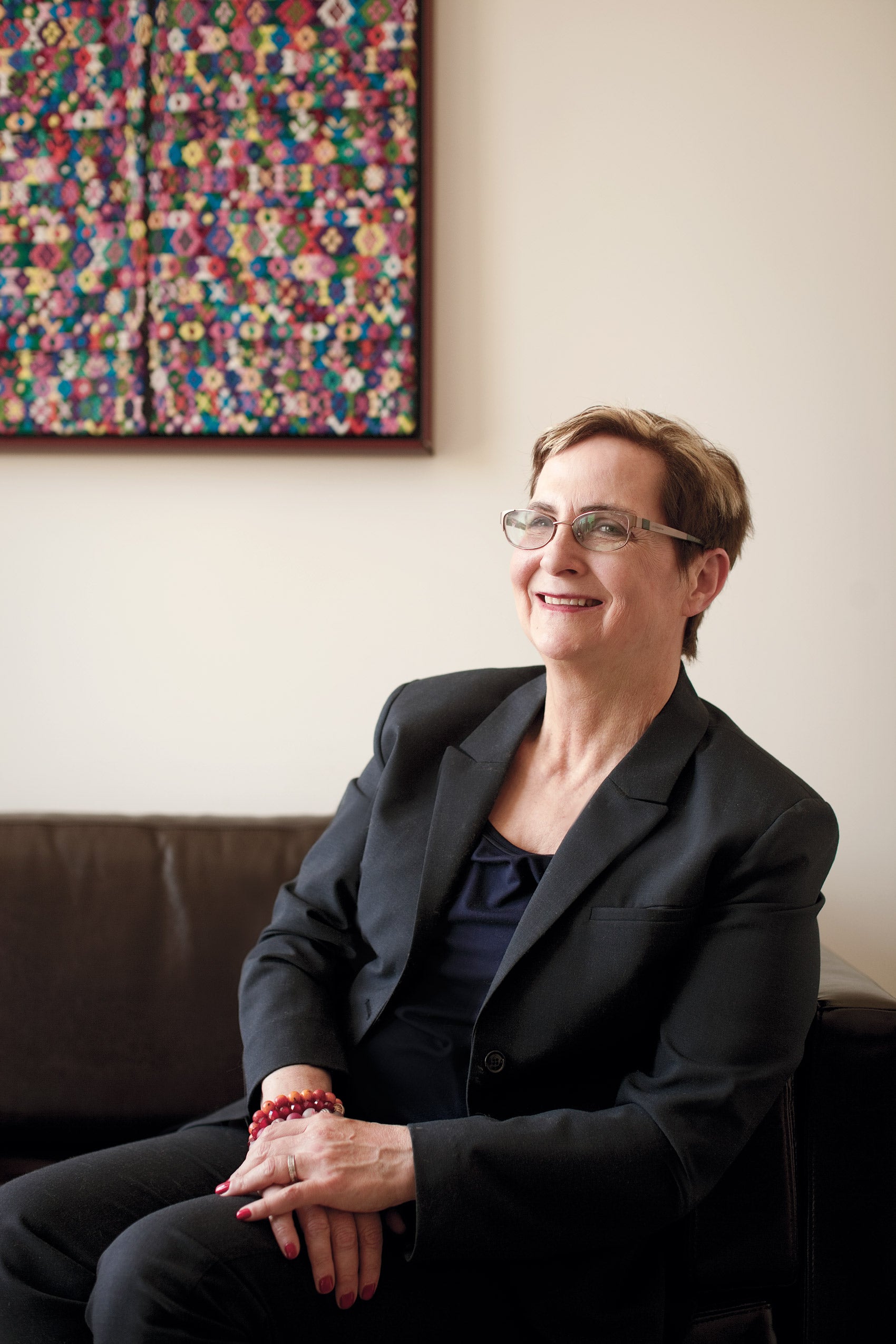The Harvard Immigration and Refugee Clinical Program was established by Professor Deborah Anker LL.M. ’84 three decades ago. One of the first two immigration law clinics in the country, it is run in partnership with Greater Boston Legal Services. Under Anker’s guidance, hundreds of clinical students have helped more than a thousand people gain entry into the United States or avoid deportation. Anker is one of the most widely known asylum scholars and practitioners in the country; her treatise, “Law of Asylum in the United States,” is considered a bible in the field. She spoke with Katie Bacon in mid-March.
What first drew you to this area of the law?
I was very involved in local civil rights work around desegregation. This was my passion. And then I discovered immigration work, and I realized it was an area I had a direct connection to. My grandparents’ whole family got wiped out in the Holocaust; a lot of my parents’ generation did as well. I thought certainly as a Jew and as a social activist that this was a critical area and something that engaged me deeply.
How has the work of your clinic—and the types of cases that come to you—shifted over the years?
It has both shifted and remained grounded. One of the things that distinguishes our clinic from some others is that we’ve always been grounded in direct representation of clients. But it’s shifted in that we now do a lot of work on LGBT cases, gang cases and gender asylum, which is really an area of law that we created.
Margaret Stock [’92] singled you out for the passion you display in class and in your work. Is a sense of passion essential if you’re going to succeed in the field of immigration law?
These are really often death-penalty cases, because if people are returned, they’re going to get killed. And there are also cases of exile—people who have lived their whole lives here and are suddenly being detained and deported. So there’s a lot to feel passionate about. You need to be passionate about it also because you’re dealing with very traumatized people, and you’re dealing with a difficult bureaucracy. It’s very demanding work emotionally, and it’s extraordinarily rewarding work emotionally because your clients are heroes and survivors. The students spend hours and hours interviewing their clients, and they learn about countries and conflicts through their eyes.
If you could help guide or design immigration reform, what would be your advice?
Certainly we need to pass immigration reform. I would say my priorities would be protecting refugees, legalizing the status of people who have been here for a long time and reunifying families.
People think we have a very generous immigration policy, but we don’t. There’s a decade-long backlog, especially in the family-based categories. If you’ve been here undocumented for even a few months, you can’t get your status here and you have to go abroad; and then you may not get a waiver for your unlawful presence. A lot of the discretion that used to exist in immigration law has been formally taken out. Now there’s very little that judges can do, other than grant asylum and related protections.
What is your vision for the clinic and for immigration rights in general?
I think that one of the major problems with the current immigration system is that immigrants are prohibited from getting representation at government expense. These are people who desperately need representation, who are in deportation proceedings or who face persecution. The stakes are so high. We would like to see a publicly funded immigration bar. We need civil Gideon.
What I’ve noticed over the course of 30 years is that there are now so many more students interested in going into immigration and creating institutions that represent people. The students are inspiring, too. It’s about justice. It reminds me of [the words of] Martin Luther King Jr.: “The arc of the moral universe is long, but it bends towards justice.” The arc of the moral universe may be bending towards justice, but we have to be bending it. It doesn’t happen by itself.
